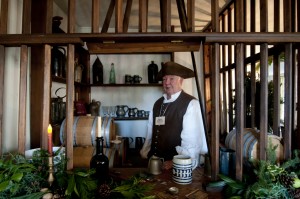 In December 1776, the British rapidly occupied most of northeastern New Jersey. Washington had lost two major forts on the lower Hudson River and had retreated across New Jersey into Pennsylvania. Hessian soldiers advanced as far as Bordentown, Columbus and Mount Holly. By deploying this extraordinary show of force, the British expected to crush the revolt. Instead, Washington won stunning victories at Trenton and Princeton, convincing the British to withdraw to bases on the Raritan River.
In December 1776, the British rapidly occupied most of northeastern New Jersey. Washington had lost two major forts on the lower Hudson River and had retreated across New Jersey into Pennsylvania. Hessian soldiers advanced as far as Bordentown, Columbus and Mount Holly. By deploying this extraordinary show of force, the British expected to crush the revolt. Instead, Washington won stunning victories at Trenton and Princeton, convincing the British to withdraw to bases on the Raritan River.
War returned to the Delaware Valley in August 1777. Advancing from Chesapeake Bay, the British defeated Washington’s forces at Brandywine on September 11, occupied Philadelphia and laid siege to forts controlling the Delaware River approach to that city. In the months that followed, armies and foraging parties crisscrossed southwestern New Jersey.
When the French allied themselves with the United States in 1778, they dispatched their Mediterranean fleet to blockade the Delaware River. Fearing they would starve in Philadelphia, the British evacuated the city on June 18. Some 20,000 British, Hessian and Loyalist soldiers, together with fleeing civilians, began a difficult crossing of New Jersey to reach their stronghold at New York.
Bordentown, a small town of quiet, tree-lined streets was home to American patriots Francis Hopkinson and “omas Paine. Hessian troops briefly occupied the town in December 1776, and in 1778 the British cannonaded it. A self-guided walking tour of notable homes is available at City Hall, and in stores throughout the historic district.
During the Revolution, the mill village of Allentownwas a center for collecting supplies for the Continental Army. On June 24, 1778, the British Army, en route to New York, occupied the town. A 19th century gristmill built on the site of earlier mills still stands beside a millpond in the village.
The historic town of Mount Holly is the seat of Burlington County. Strategically located on the Rancocas Creek, it was occupied by Continental, British and Hessian troops. On December 23, 1776, the Battle of Iron Works Hill was fought between a brigade of Hessians and a detachment of Continentals and militia. By luring the Hessians from their base in Bordentown, the Patriots prevented them from supporting the Trenton garrison during Washington’s attack on December 26. There was more skirmishing in June 1778, when the British occupied the town on their march from Philadelphia to New York. The following year, the New Jersey Legislature declared the town the state capital from November through December 1779, while Trenton was threatened with invasion.
Between October 1777, and June 1778, Continental and British forces repeatedly occupied Haddonfield. On June 18, 1778, both divisions of the British Army camped here en route from Philadelphia to New York.
